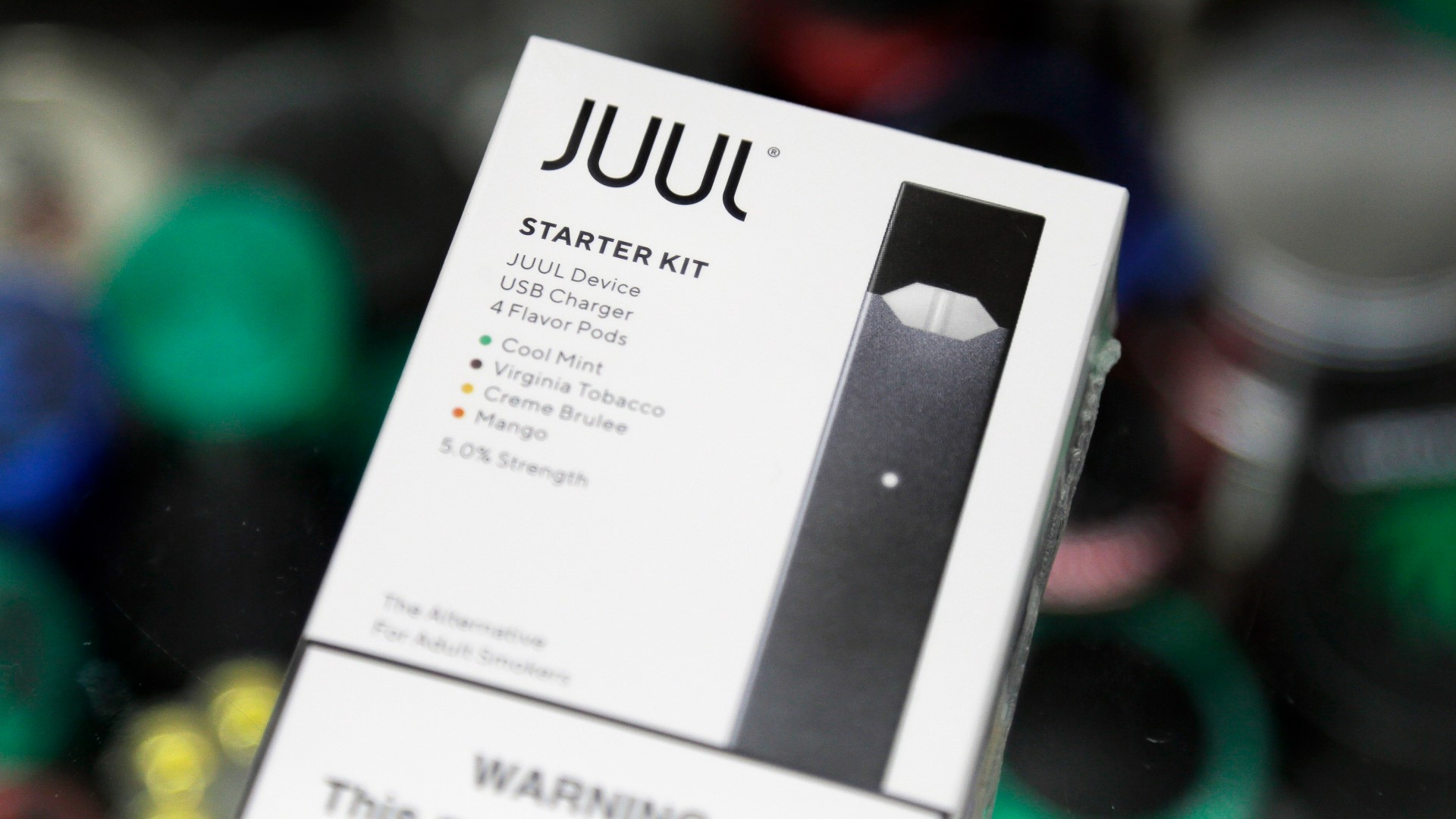HOUSTON — Electronic cigarette maker Juul Labs has agreed to pay nearly $440 million to settle a two-year investigation by 33 states into the marketing of its high-nicotine vaping products, which have long been blamed for sparking a national surge in teen vaping.
The investigation, initially launched in 2020 by Texas Attorney General Ken Paxton, was led by his office, along with the attorney generals of Connecticut and Oregon.
Of the $438.5 million, Texas will receive $42.8 million. The settlement will also force JUUL to comply with a series of strict injunctive terms severely limiting their marketing and sales practices. The settlement total amounts to about 25% of Juul’s U.S. sales of $1.9 billion last year.
The $438.5 million would be paid out over a period of six to 10 years, with the amounts paid increasing the longer the company takes to make the payments. If JUUL chooses to extend the payment period up to 10 years, the final settlement would reach $476.6 million.
“When I launched this investigation over two years ago, my goal was to make sure JUUL was held liable for any wrongdoing done in the past and ensure that they change direction to fully comply with the law going forward. This settlement helps accomplish both of those priorities,” Paxton said. “My commitment to protecting consumers from deceptive business practices is unwavering, and any company that misleads Texans, especially our youth, will be held accountable for their actions.”
The settlement, which includes numerous restrictions on how Juul can market its products, resolves one of the biggest legal threats facing the beleaguered company, which still faces nine separate lawsuits from other states. Additionally, Juul faces hundreds of personal lawsuits brought on behalf of teenagers and others who say they became addicted to the company's vaping products.
The states' investigation found that Juul marketed its e-cigarettes to underage teens with launch parties, product giveaways and ads and social media posts using youthful models, according to a statement.
Most of the limits imposed by Tuesday's settlement won't immediately affect Juul, which halted use of parties, giveaways and other promotions after coming under scrutiny several years ago.
Teen use of e-cigarettes skyrocketed in the years following Juul’s 2015 launch, leading the U.S. Food and Drug Administration to declare an “epidemic” of underage vaping among young people. Health experts said the unprecedented increase risked hooking a generation of young people on nicotine.
But since 2019 Juul has mostly been in retreat, dropping all U.S. advertising and pulling its fruit and candy flavors from store shelves.
The biggest blow came earlier this summer when the FDA moved to ban all Juul e-cigarettes from the market. Juul challenged that ruling in court, and the FDA has since reopened its scientific review into the company's technology.
The FDA review is part of a sweeping effort by regulators to bring scrutiny to the multibillion-dollar vaping industry after years of delays. The agency has authorized a handful of e-cigarettes from Juul's competitors for adult smokers looking for a less harmful alternative to cigarettes.
While Juul's early marketing focused on young, urban professionals, the company has since shifted to pitching its product as an alternative nicotine source for older smokers.
“We remain focused on our future as we fulfill our mission to transition adult smokers away from cigarettes — the number one cause of preventable death — while combating underage use,” the company said in a statement.
Juul initially sold its high-nicotine pods in flavors like mango, mint and creme. The products became a scourge in U.S. high schools, with students vaping in bathrooms and hallways between classes.
But recent federal survey data shows that teens have been shifting away from the company. Most teens now prefer disposable e-cigarettes, some of which continue to be sold in sweet, fruity flavors.
Overall, the survey showed a drop of nearly 40% in the teen vaping rate as many kids were forced to learn from home during the pandemic. Still, federal officials cautioned about interpreting the results given they were collected online for the first time, instead of in classrooms.
Juul has agreed to refrain from a host of marketing practices as part of the settlement. They include not using cartoons, paying social media influencers, depicting people under 35, advertising on billboards and public transportation and placing ads in any outlets unless 85% of their audience are adults.
The deal also includes restrictions on where Juul products may be placed in stores, age verification on all sales and limits to online and retail sales.
The following states and territories are joining Texas in the settlement: Alabama, Arkansas, Connecticut, Delaware, Georgia, Hawaii, Idaho, Indiana, Kansas, Kentucky, Maryland, Maine, Mississippi, Montana, North Dakota, Nebraska, New Hampshire, New Jersey, Nevada, Ohio, Oklahoma, Oregon, Puerto Rico, Rhode Island, South Carolina, South Dakota, Tennessee, Utah, Virginia, Vermont, Wisconsin, and Wyoming.

